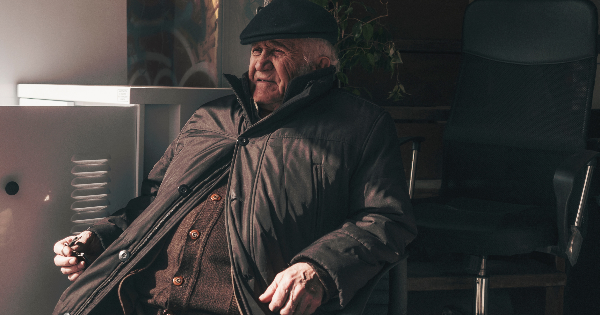
—
Dear Mr. Dad: I am 74 years old and handicapped. My 43-year-old daughter moved into my house with her boyfriend and was supposed to help me with basic caregiving. But instead, the two of them have turned my house into a dump, destroying my furniture, damaging the walls, and more. I made the mistake of giving my daughter access to my checking account so she could help me with paying bills and, instead, she’s stealing money from me. I think she may also have opened up some credit cards in my name. I’ve told them several times to leave, but every time I do, she either hits me or threatens to put me in a facility. I’m afraid and don’t know what to do.
A: As quickly as possible, call someone you can trust and get yourself to a safe place where your daughter and her boyfriend can’t reach you. As soon as you’re there, call the police and tell them that you’re reporting a case of elder abuse. Also, call your county’s Adult Protective Services Agency (every county has one) and report the abuse. According to the CDC, elder abuse is “an intentional act, or failure to act, by a caregiver or another person in a relationship involving an expectation of trust that causes or creates a risk of harm to an older adult.” Elder abuse may include physical abuse, emotional abuse (such as threats to have you removed from your home), neglect (such as not caring for you), financial exploitation, and even sexual abuse. From what you describe, you’re definitely a victim.
There are a number of other calls you’ll need to make: A lawyer should be able to help you evict your daughter from your home and keep her and her boyfriend away from you. An accountant or financial expert (and maybe the lawyer) should be able to tell you what you need to do to take away any kind of access your daughter has to your money or assets, including your retirement accounts and your home.
If you don’t already know people who can help with these issues, call the Eldercare Locator at 1-800-677-1116 or visit their website, https://eldercare.acl.gov. Another good source of information, support, and referrals is the National Center on Elder Abuse, which you can reach at 202-898-2586 or www.elderabusecenter.org.
Unfortunately, there’s very little accurate data on how widespread the problem of elder abuse is. What we do know is that as the U.S. population ages, the problem gets bigger. However, unlike the fields of child abuse and domestic violence, there is no comprehensive nationwide approach that brings together researchers, government agencies, lawmakers, and enforcement agencies to combat the problem.
Hopefully, the above steps will help you deal with your most immediate concerns. Moving forward, it’s essential that you take steps to protect yourself from becoming a victim again.
• Be more social. Isolation makes people more vulnerable to abuse. So spend time with trusted friends and relatives, take classes, and stay in contact with others.
• Be prepared. Have your social security checks direct deposited into a checking account. Set up healthcare directives, limited powers of attorney, and other documents to protect your assets and limit other people’s access to them.
• Be a skeptic. If you get a call or email telling you that you’ve won some huge prize or vacation, chances are, it’s a scam. Registering your phone numbers with the National Do-Not-Call Registry 1-888-382-1222, may reduce the number of telemarketing calls you get.
Call the police immediately if you think someone is trying to victimize you.
Previously published on Mr. Dad
Photo: Unsplash
SaveSave
The post Guarding Against Elder Abuse appeared first on The Good Men Project.
(via The Good Men Project)






